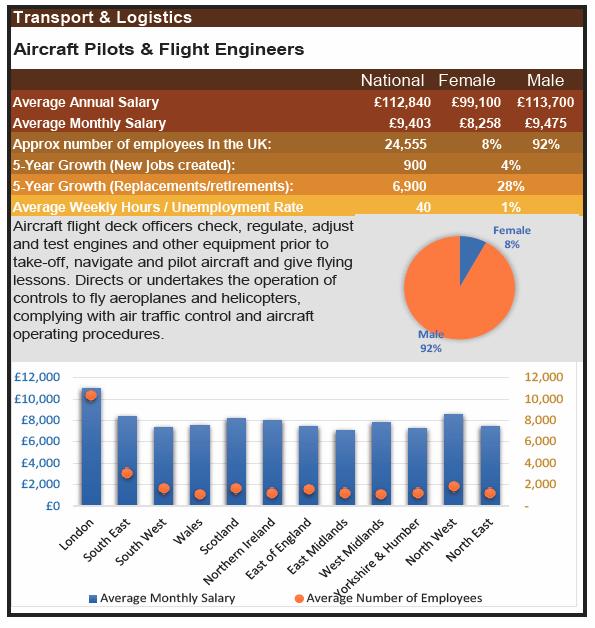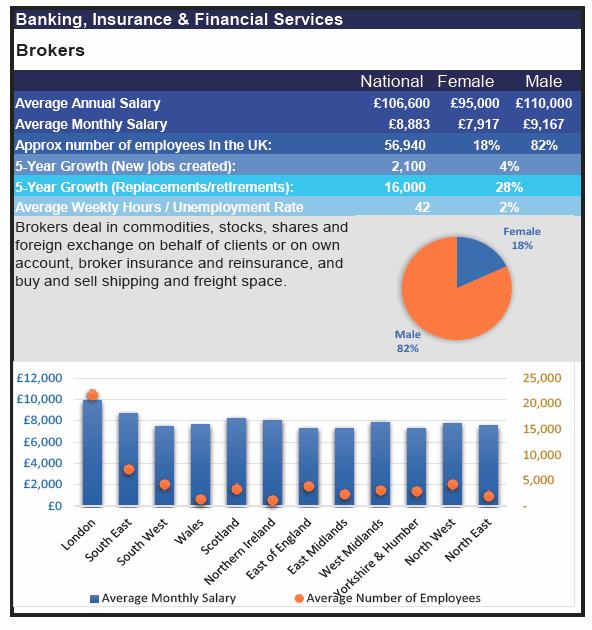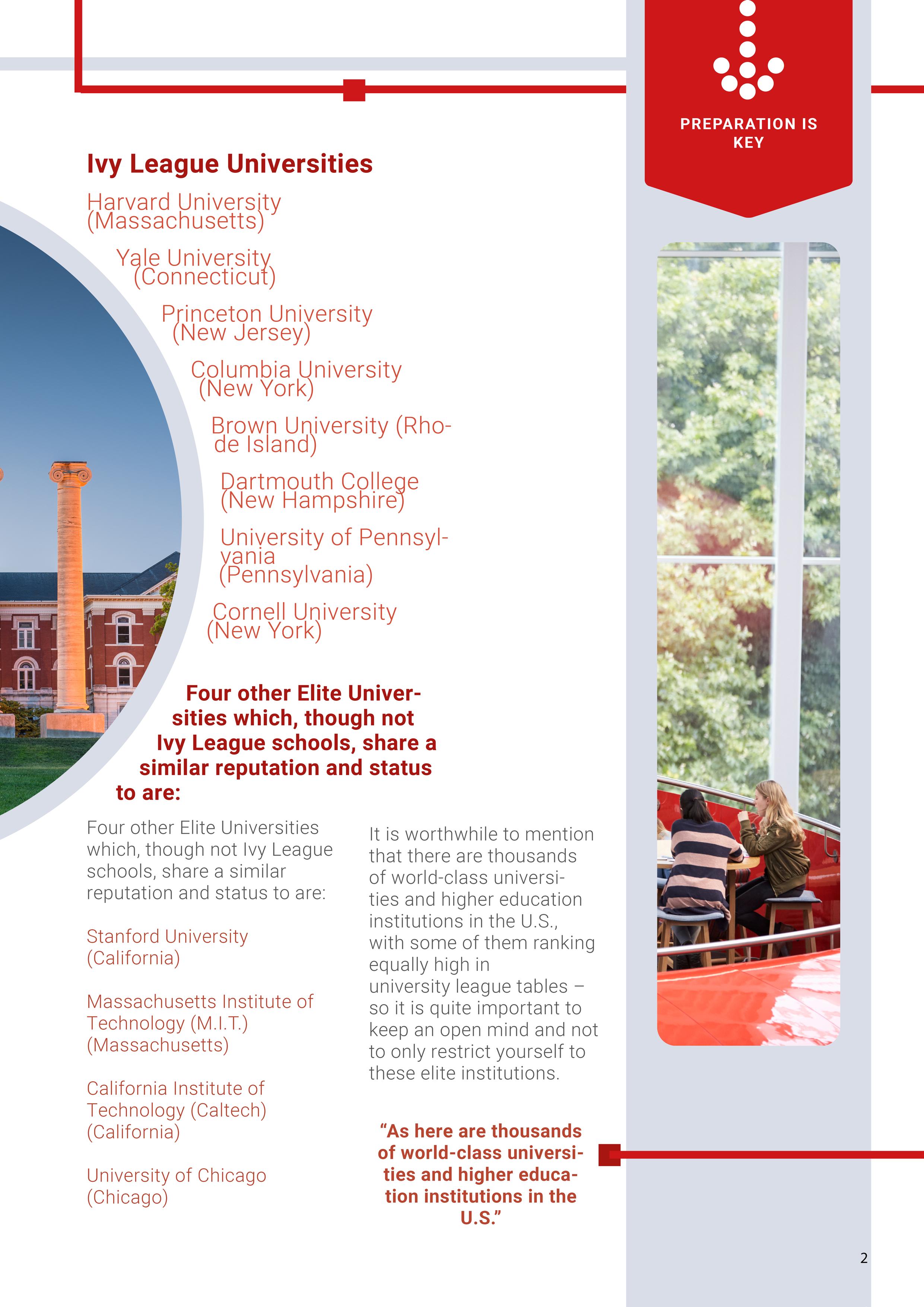
16 minute read
CLEARING 2020 UC A S
MAGAZINE JUNE 2020 STUDY & CAREERS
05
Advertisement
Has Lockdown Complelled us to develop a Greater Creativity? Ofqual 2020 Grading System Degree Apprenticeship Assessment Centres Initial thoughts on... How to read a novel

UK’S 2020 TOP PAYING JOBS (LMI) MEDICAL SCHOOL APPLICATIONS TIPS FOR CHOOSING THE RIGHT A LEVEL/ IB/SCOTTISH HIGHER SUBJECTS STUDYING IN THE U.S
contents

03
LOCKDOWN

05
reading
Initial Thoughts on how to Study a Novel
08
ofqual
The Grading System Explained
10
ucas
Clearing 2020

14
year 13
Destination Options after Year 13
study & careers
GCSE STUDENTS
16

Medical school
Medical School Applications
24

Assessment Centre
30

uk’s highest paying jobs
LMI - A List of UK’s Highest Paying Jobs 2020
38
studying in the u.s
Tips on Making Applications to U.S Universities
EDITORIAL NOTE The views, comments statements and opinions are not necessarily those of Study & Careers Magazine. Study & Careers Magazine will accept no responsibility for any loss incurred by any person or organisation as a result of using any material from this publication.
48

During these unusual times we find ourselves in, I have tried to optimise the situation to my online students and encourage them all to start a Corona Diary 2020 ! I started explaining the relevance of this by stating the obvious, these are unusual times… never experienced by the people since the Spanish Flu Pandemic of 1918. Ipso Facto the Corona Diary 2020 would become in time a historical document, this sparked interest in the majority of the students, apart from one or two who queried what one should write about? The answer is abundantly clear to many, in the sheer amount of mundane but necessary routines that now have to be adhered to; from social distancing, by 2-metereswhich we have all had to become instantly adept in assessing in any given circumstance. 16 4


To the new vocabulary brought about by the pandemic itself: Infact, Merriam-Webster have been obliged to add new words to the Dictionary in March 2020: ‘Social-distancing’. ‘super-spreader, lockdown, Index-case and self-quarantine’ to name but a few. We are now literally having to do the opposite of ‘thinking outside the box’ , as conversely we find ourselves driven to ‘think inside the box’ whilst searching for inspiration to entertain and develop skills to ensure we maintain momentum and remain functional on as many levels as possible to compensate for the other aspects of our daily lives that have been temporarily denied to us for the time-being. amid the ongoing crisis. So apart from teaching Creativity and teaching it creatively sounds like a conundrum- when we consider that creativity is innate in us all to varying extents;
However, it is in some cases never more profound than when we are young and view the world through an unfiltered optimism and untainted perspective; along the lines of Charles Kingsley’s poem from The Water Babies: ‘
When all the world is young lad and all the trees are green; And every goose a swan lad, and every lass a queen…’
To study for a postgraduate certificate in Education or a PGCE to teach is a necessary requirement to enable teachers and lecturers to work in schools, colleges and universities; After this, we develop our teaching repertoire in a bid to encourage and inspire creativity in all students to enhance progress and develop skills in all aspects of communication.
On many occasions we explain how crucial the vocabulary is, in creating an image in the reader’s mind; about how in the given medium of writing, there is no addition of a voice or expressions to contribute to the interpretation and meaning. Subsequently every selected word had been carefully chosen to create a specific effect or image in the reader’s mind. Once this is fully understood, a complete perspective of the writer’s intended meaning is often seen with greater clarity. A prime example of how effectively paying attention to the carefully crafted words helps interpret meaning, is apparent in the fabulous sketches of Emmeline Sutcliffe, five-years of age from Halifax West Yorkshire.
Upon listening to the first 2-chapters of an Audiobook of J.K. Rowling’s new novel The Ickabog and after answering a request from the author for readers to attempt to convey the charters of her new book in submitted illustrations, Emmeline produced the following amazing creations of The Ickabog and Fred the Fearless ‘Education is not the filling of a pail, but the lighting of a fire…’

Melanie Robinson (BA Hons, PGCE/HE/FE) is a private tutor offering services in: All key stages and levels of English Secondary – GCSE English – AS/A2 English Language & Literature Proof Reading Supporting Statements & CV’s Undergraduate & Postgraduate support with Dissertations. ESOL – Literacy – Numeracy – Citizenship You can contact her on: 07817564074, melanie.robinsonlecturer@gmail.com, http://melanie-robinson.co.uk/
Studying any novel is a significant under taking and any in-depth study of a novel for examination will require a considerable amount of study in addition to that which one might under take in a half-term’s work in school. As a star ting point, however, there are three key elements on which you should focus your attention.
1. Narrative Structure
When we discuss the narrative structure of a novel, we are basically considering the story and the plot. Story refers to the content of the dramatic action. Plot refers to sequencing of those dramatic actions – how, and at what stages, the key conflicts are set up and resolved. There are two main types of narrative structure that you are likely to encounter: linear (events being told in chronological order) and non-linear (events portrayed in a disjointed, non-chronological order). Recognising and understanding the sequencing of the events in a novel is important because this impacts on the way we react to the text and should influence the way we interpret the purpose and effect of its structure.
Understanding the structure of a text is a specific question on some exam papers so having a clear appreciation of the way the plot moves from event to event and the effect of these movements on a reader is vitally important. Even the most complicated of plots can usually be broken down into simpler steps. One strategy for gaining a clear sense of plot is to write each step of the plot on a separate postcard, listing the key events and characters involved in those events. In this way you can begin to see how different events, actions and characters are positioned within the overall narrative to create effects on you as the reader.

Many genres, especially adventure stories, follow a clear plot or narrative structure. This can be seen in such varied adventure stories as Homer’s Odyssey, Lucas’ Star Wars, Rowling’s Harry Potter series and Collins’ Hunger Games. Indeed, Joseph Campbell, one of the foremost theorists in comparative mythology, suggested in his study The Hero with a Thousand Faces that all stories contain essential narrative elements.
These are:
1. 2. 3. 4. 5. 6. Stasis – the presentation of the Ordinary World Call to Adventure Refusal of the Call Meeting the Mentor Crossing the Threshold Tests, Allies, Enemies 7. Approach to the Innermost Cave 8. Ordeal 9. Reward (Seizing the Sword) 10. The Road Back 11. Resurrection
Try mapping this structure onto a book that you are currently studying or even onto a simple fairy tale. It does work. Some of the elements may be more prominent than others but through observing those shifts in emphasis you will gain a better understanding of the way the author has tried to position these elements for effect. If you are studying The Strange Case of Dr Jekyll and Mr Hyde, for example, a careful consideration of the way Stevenson structures the narrative is essential since the success of the detective genre element of the novel is, in part, due to the way in which Stevenson creates and sustains mystery and tension concerning the relationship between Dr Jekyll and Mr Hyde.
Characters
Obviously, all novels have characters, usually including a protagonist (leading character) and an antagonist (adversary). The characters are usually human, but non-human characters might include animals, robots, gods, and mythical creatures.
To analyse characters critically, you need to assess characterisation – that’s to say, how has the author designed the character? One of the biggest mistakes that some students make is to think that characters in novels are real people rather than imaginative constructions designed for specific roles, purposes and effects.
Authors have several methods of telling us about the characters they have constructed: • Dialogue - What the characters say to one another • Internal monologue - What the characters think to themselves • Action - What the characters do • Appearance - How the characters look • What the narrator has to say about them
Whilst it’s important to understand what roles, relationships, attitudes, ideas and emotions various characters possess, it is also essential to observe and assess the ways in which a writer constructs details of character dialogue, internal thoughts, actions and appearance through language. It is also valuable to note how characters’ moods, motivations and relationships develop and change within the narrative, how they develop the various elements of the narrative and contribute to the themes of the novel? If you are studying Dickens’ Great Expectations, it is essential that you recognise that the story is told entirely from the first person viewpoint of Pip and that his experiences, attitudes, emotions and dialogue are constructed by Dickens in order to guide our sympathies.
Setting
It is crucial to have a very clear appreciation of the settings involved in a novel. I have used the plural ‘settings’ because the action in a novel can, of course, take place in many different geographical locations. In addition, however, setting also refers to the historical period in which the action takes place, the social, economic and political features of the society in which the action takes place, and the philosophical and ideological principles which may have been prevalent at the time the novel is set and the time in which it was written. For example, if you are studying George Orwell’s Animal Farm, whilst you may enjoy it as a moral fable about animals taking over control of a farm from their human master, your ability to fully interpret and understand the novel would be seriously impaired if you hadn’t researched Marxism, The Russian Revolution and Communism. Therefore, when you analyse a novel, understanding the settings and how these relate to the genre or the themes of the novel is a crucial element of critical analysis.
In summary, in order to successfully begin to appreciate a novel, as a starting point, you need to ensure that you have a thorough knowledge of its plot or narrative structure, its characters and its settings. About the Author:

R o b e r t C a v e n d e r i s a D i r e c t o r o f L e a r n i n g & E n g l i s h T u t o r a t A s h b y K n i g h t E d u c a t i o n . F o r m o r e i n f o r m a t i o n o n A s h b y K n i g h t ’ s p r i v a t e t u i t i o n s e r v i c e s y o u c a n c o n t a c t t h e m a t www.ashbyknight.com 0345 053 7329 i n f o @ a s h b y k n i g h t . c o m

PRIVATE TUITION REDEFINED

AT HOME (FACE-TO-FACE)
ONLINE AT OUR CENTRES
EARLY PREPARATION TIPS FOR UCAS CLEARING 2020 With A Levels/IB exam assessments pretty much done, we are all now focussing on Thursday 13 August 2020, the current predicted Results Day. We hope everything will go according to plan. However, sometimes things don’t go to plan. If you end up not getting the results you were expecting and end up missing out on your preferred university place, there is still light at the end of the tunnel.
UCAS’s Clearing is any opportunity for you to reapply to universities that have vacancies that haven’t been filled yet. Clearing is particularly relevant if: • you don’t get the grades you need for the universities you applied to earlier in the year • you don’t want to accept any of the offers made to you • you apply to university after 30 June • you’ve had a sudden change of heart about your choices.
This year in particular, a lot of universities are likely to be taking applications through this route, so you should be able to find something that suits you, and still have the opportunity to enjoy university experience This UCAS video explains how you can use Clearing to find a course at university or college if you don't have a place.
When can I apply through Clearing?
Clearing officially opens on UCAS on 6 July. But most people tend to wait to see what their exam results are before using the system. Places can fill up quickly, so you’ll want to get on the phone as soon as you get your results to see what University courses are open to you with your grades.
How does Clearing work?
Results day can be a bit stressful, particularly if you didn’t do as well as you’d hoped. The main thing is not to panic. If you’re still set on going to university, chances are you’ll be able to do that.
What if I've done better than expected?
Firstly, congratulations – well done! If you’ve met or exceeded your offers, then you may need to consider using Adjustment. This is an opportunity for you to reconsider where and what to study. This is entirely optional, but you may wish to have a look around at other courses or universities if you feel that will enhance your ultimate outcomes. Contact the relevant university directly to discuss your options.
Can I reapply to the same course through Clearing?
If you made an application to a university and this application was rejected during the main UCAS cycle, unfortunately most universities may not consider an application for the same course through Clearing. Some universities are happy to provide feedback as to why your application was rejected, in order that you can make changes and reapply in the next UCAS cycle. Some universities may even be able to discuss your current options further, so do try to contact their admissions team to discuss your situation. 10 10
Add clearing choices

If you applied through UCAS earlier in the year, and you’re eligible for Clearing, you’ll see an ‘Add Clearing choice’ on the UCAS Track system. You’ll also be given a Clearing number, which you’ll need when contacting each University about their Clearing courses. If you haven’t registered with UCAS, you can apply to the University through Clearing directly. There are a number of ways you can do this – call UCAS, apply online, or apply through social media.
Prepare Make a list of your qualifications and grades, and work out how many UCAS points you hold using a tariff calculator. When you contact the University, they may ask you about your Level 3 results (A-levels, BTECs etc), as well as your Maths and English GCSE results. Also, make a note of any questions you want to ask them, so you don’t forget anything. You may have your heart set on a particular course, but it doesn’t harm to look at all the options. Most universities publish Clearing vacancies on their websites in July each year, so you can see which courses still have spaces on them. The majority of the universities will have on offer a wide range of subjects and there could well be something different there that’s still a perfect fit for you.

Apply If you see a course you’re interested in applying for at a particular university, call or email them. You can also apply to most universities through Twitter, Facebook or WhatsApp. You just need to send them a private message with the information such as: • Name, phone number, email address or your UCAS personal ID (if you have one) • Your grades and UCAS points • Your subjects • The name of the course or courses you’re interested in. Once you have received an offer, if you applied through UCAS, you’ll need to add them as a Clearing choice on Track. If you apply to them directly, rather than through UCAS, they’ll email you to let you know what to do next.


Once again, thank you!

Once again, thank you!
1


5 6




4
7


8






